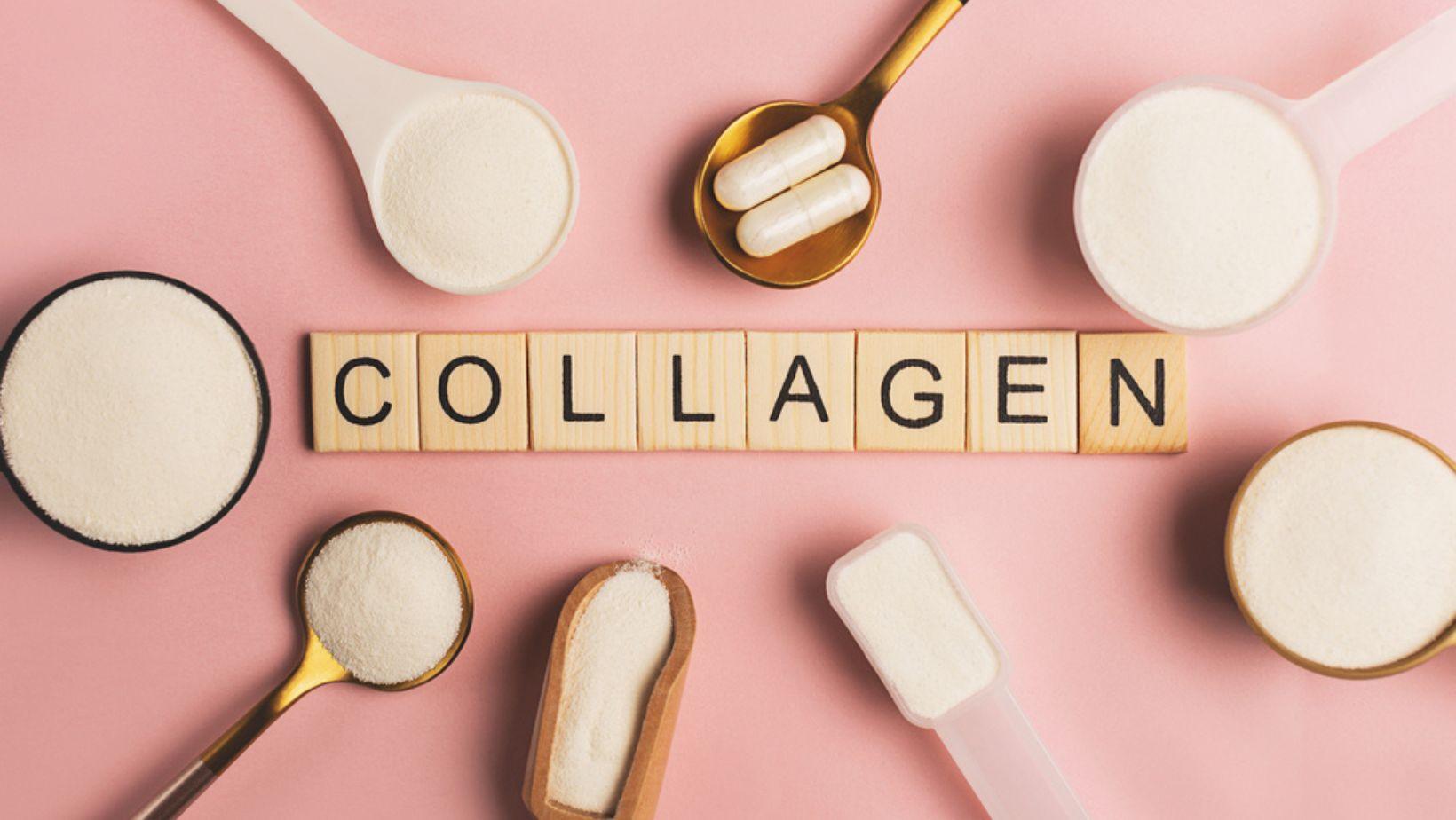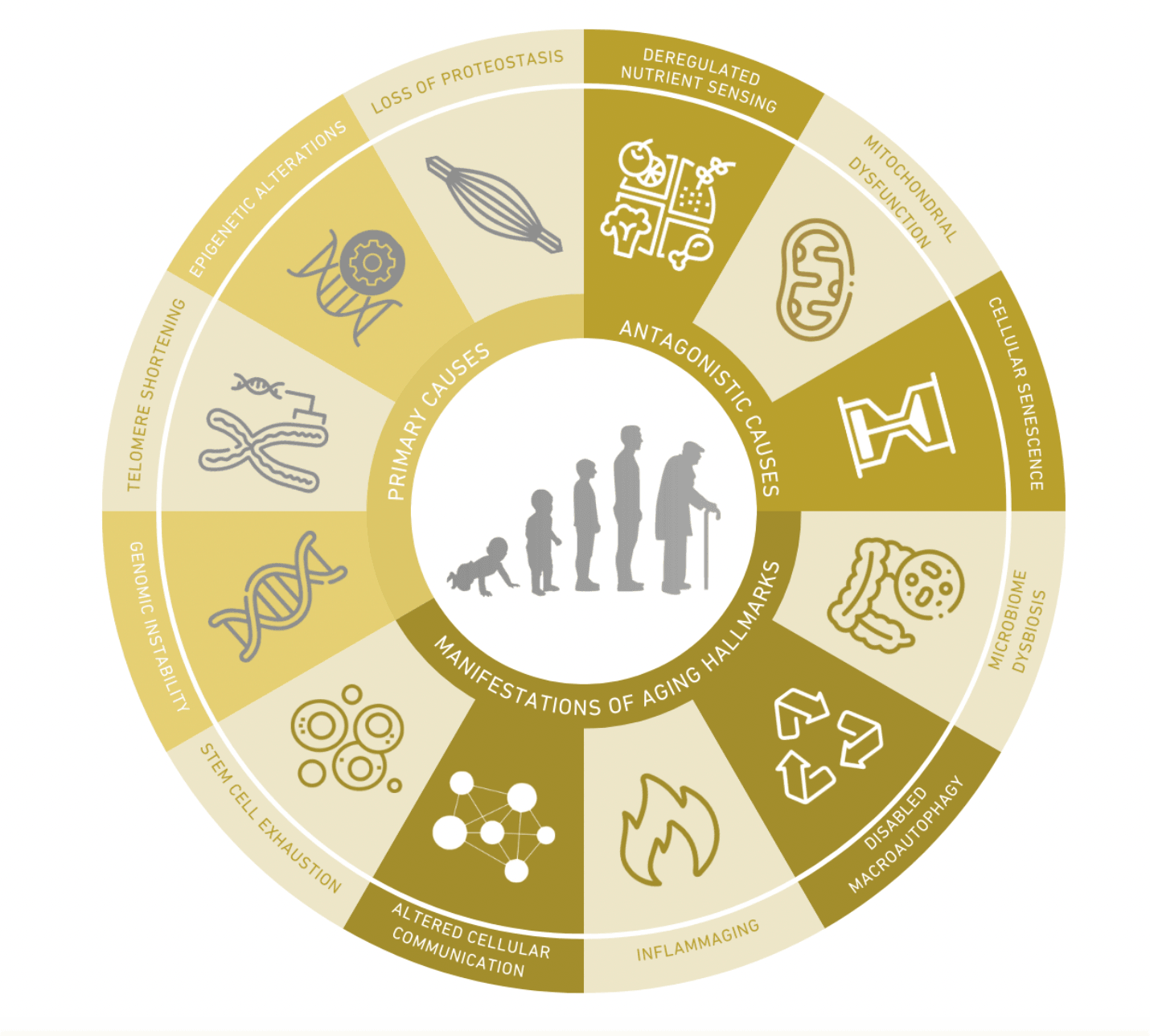Collagen 101: What Is It and Why Is It Essential for Our Bodies?

Collagen is a term that frequently pops up in discussions about health, beauty, and wellness. It's often associated with youthful skin, strong nails, and healthy hair, but collagen's role in the body goes much deeper. In this comprehensive guide, we'll explore "what is collagen," what it is made of, and why it is so crucial for our bodies.
What Is Collagen?
Collagen is the most abundant protein in the human body, accounting for about one-third of its protein composition. It's a key component of connective tissues that make up several body parts, including tendons, ligaments, skin, and muscles. Collagen has a unique structure, characterized by long, fibrillar strands that provide strength and elasticity.
The Types of Collagen
There are at least 16 types of collagen, but the body primarily consists of types I, II, and III:
- Type I: This type accounts for 90% of your body's collagen and is made of densely packed fibers. It provides structure to skin, bones, tendons, fibrous cartilage, connective tissue, and teeth.
- Type II: This type is made of more loosely packed fibers and found in elastic cartilage, which cushions your joints.
- Type III: This type supports the structure of muscles, organs, and arteries.
What Is Collagen Made Of?
Collagen is a protein, which means it's made up of amino acids. The primary amino acids in collagen are glycine, proline, and hydroxyproline. These amino acids form a triple helix that gives collagen its unique strength and structural properties. The body can make collagen, but it requires certain nutrients, including vitamin C, proline, glycine, and copper.

The Role of Collagen in the Body
Understanding "what is collagen" involves looking at its various roles in the body:
- Structural Support: Collagen provides structure to the skin, bones, and connective tissues, helping maintain their strength and elasticity.
- Joint Health: It helps maintain the integrity of cartilage, the rubber-like tissue that protects your joints.
- Skin Elasticity and Hydration: Collagen is vital for maintaining skin elasticity and hydration. As we age, collagen production declines, leading to drier, more wrinkled skin.
- Muscle Mass: It plays a role in building and maintaining muscle mass, particularly in conjunction with resistance training.
- Other Functions: Collagen is also important for protecting organs, providing structure to arteries, and facilitating blood clotting.
What Is Collagen Good For?
Collagen's benefits are extensive, impacting various aspects of health and wellness:
- Skin Health: Collagen supplements can help improve skin elasticity, reduce wrinkles, and increase skin moisture.
- Joint Pain Relief: Supplementing with collagen can lead to reduced inflammation and better joint support, potentially alleviating pain.
- Bone Health: Collagen helps maintain bone density and strength, which is crucial as we age.
- Muscle Mass and Strength: Particularly in older adults, collagen supplementation can help improve muscle mass and strength.
- Heart Health: By providing structure to arteries, collagen is essential for maintaining heart health and preventing arteriosclerosis.
Collagen Production and Ageing
Collagen production naturally decreases as we age. This reduction leads to common signs of ageing like wrinkles, sagging skin, and joint pain. Factors like smoking, sun exposure, and poor diet can also contribute to the breakdown of collagen.
Boosting Collagen Levels
You can boost collagen levels in your body through diet and supplements. Foods rich in vitamin C, proline, and glycine can support collagen production. Bone broth and collagen supplements are direct sources of collagen.
Collagen Supplements: Types and Efficiency
Collagen supplements are available in various forms, including powders, capsules, and liquids. They usually contain hydrolyzed collagen, which means the collagen has been broken down into smaller, easily digestible peptides. These supplements are derived from different sources, including bovine (cow), marine (fish), chicken, and porcine (pig).
Research suggests that hydrolyzed collagen supplements are efficiently absorbed into the bloodstream and can improve the collagen content of the skin, reduce wrinkles, and support joint health.

Safety and Considerations
Collagen supplements are generally considered safe, with few reported side effects. However, it's important to choose supplements from reputable sources to avoid contaminants. For those with allergies, it's crucial to select a collagen source that does not trigger allergic reactions, such as marine collagen for individuals allergic to fish.
Collagen in Skincare
Collagen is a popular ingredient in skincare products, touted for its anti-ageing properties. Topical collagen is intended to improve skin hydration and elasticity. However, collagen molecules are typically too large to be absorbed through the skin. These products may offer temporary benefits but don't typically increase collagen levels in the skin, like supplements do.
The Future of Collagen Research
Ongoing research continues to reveal more about collagen's benefits, how it works in the body, and how we can optimize its levels as we age. Scientists are also exploring biotechnological methods to produce collagen, which may offer more sustainable and ethical sources of this vital protein.
Conclusion
To understand "what is collagen" is to appreciate a key component of our body's structural integrity and overall health. Collagen's impact on our skin, joints, bones, and more makes it an essential protein. Whether through diet, supplements, or skincare, supporting your body's collagen can contribute significantly to your health and well-being. As always, it's advisable to consult with healthcare professionals before starting any new supplement regimen, especially to address specific health concerns or conditions.



